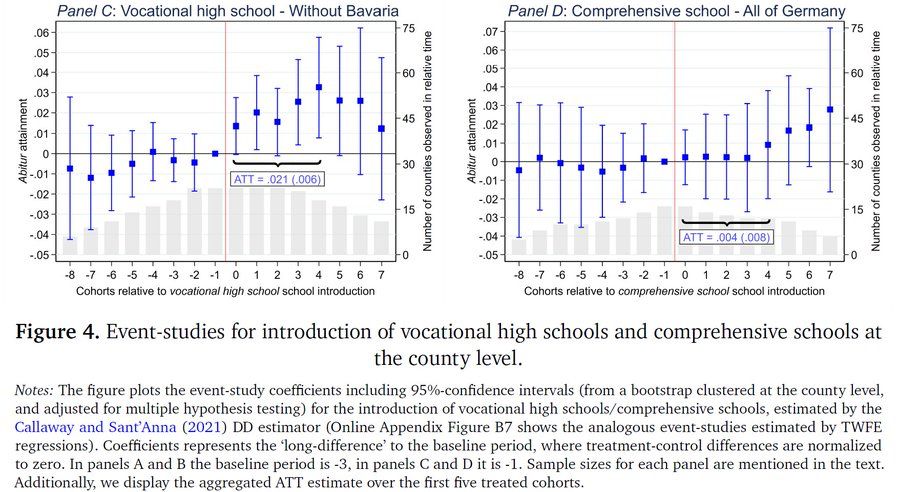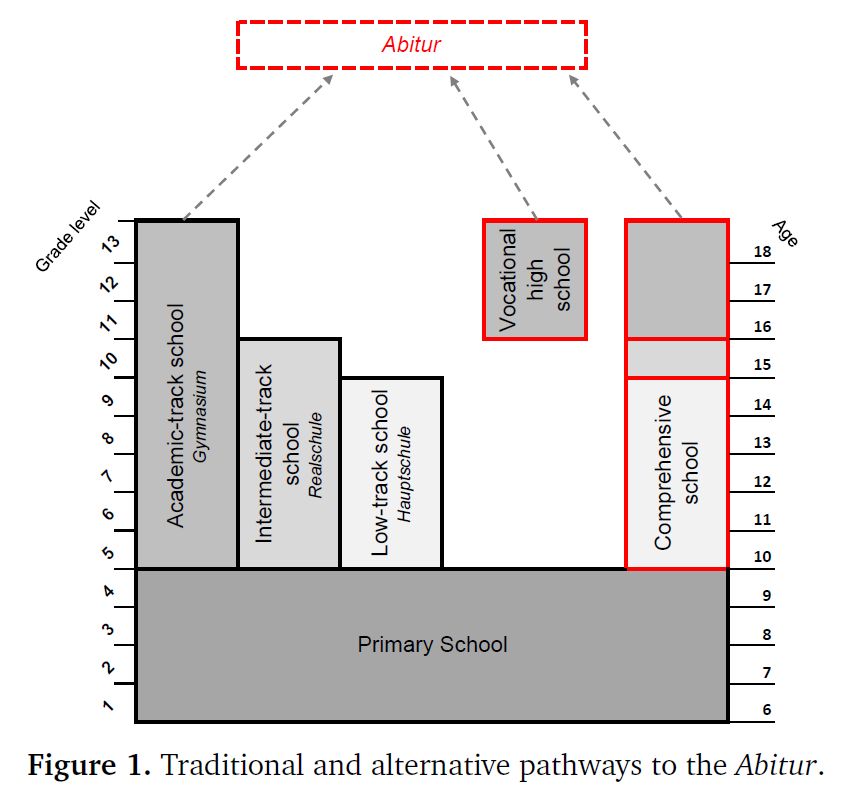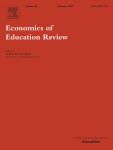"If the Netherlands continues on its current path of parochialism and administrative hostility, it risks not only dismantling the international excellence it spent decades building but also fueling a brain drain toward neighbors who still understand the value of an open academic society."
20.12.2025 14:40 —
👍 179
🔁 74
💬 11
📌 2

Examining the causal effects of cellphone bans in Florida on student test scores, suspensions, and absences, from David N. Figlio and Umut Özek www.nber.org/papers/w34388
24.10.2025 19:03 —
👍 11
🔁 5
💬 0
📌 1
Haha very recognisable!
24.07.2025 10:15 —
👍 1
🔁 0
💬 0
📌 0
Shouldn’t genes have been cited as confounders (instead of mediators) by those doubting a causal relationship or what am I missing?
21.07.2025 22:57 —
👍 1
🔁 0
💬 1
📌 0
I see, thanks!
15.07.2025 22:54 —
👍 1
🔁 0
💬 0
📌 0
What’s a firm choice course?
15.07.2025 09:42 —
👍 0
🔁 0
💬 1
📌 0
Congrats!!
26.06.2025 19:14 —
👍 1
🔁 0
💬 0
📌 0
I don’t know what the plan is, but would be nice to see you!
29.05.2025 16:34 —
👍 1
🔁 0
💬 0
📌 0
Better LATE than nothing ;)
29.05.2025 13:41 —
👍 3
🔁 0
💬 1
📌 0
 07.12.2024 22:21 —
👍 462
🔁 87
💬 8
📌 12
07.12.2024 22:21 —
👍 462
🔁 87
💬 8
📌 12
* omtrent brede scholen: tenminste niet als ze moeten concurreren met vwo scholen.
04.02.2025 11:23 —
👍 0
🔁 0
💬 0
📌 0
for (i.e. compete with) non-academic schools, though.
Finally, also note that (in contrast to VHS) we have few CS openings in our data, limiting stat power. I stylized our findings a bit for this thread: probably better to say we don’t reject the null of no effect for CS rather than there is no xf.
04.02.2025 11:12 —
👍 0
🔁 0
💬 0
📌 0
2. To your second point: our observation period purposefully excludes the recent reforms (starting in 2010) that relabeled non-academic track schools as comprehensive schools. Virtually all CS in our sample should be genuine CS from the start. In practice, they still seem to mainly substitute 3/n
04.02.2025 11:12 —
👍 1
🔁 0
💬 1
📌 0
I see why you prefer to call it increasing flexibility in the case of VHS (that's how we call it in the first sentence of the abstract). To me it doesn't matter.
Our paper doesn't speak to whether or not students benefitted from the early selection / attending a less demanding track first. 2/n
04.02.2025 11:12 —
👍 0
🔁 0
💬 1
📌 0
Thanks!
1. To your semantic point: we call it de-tracking *at the margin* bc both new school types de-track *upper-sec* school by offering the academic upper-sec grades and awarding Abitur. Indeed they don't de-track lower-sec school (though CS might have that ambition but de facto it doesn't). 1/n
04.02.2025 11:12 —
👍 0
🔁 0
💬 1
📌 0
Welcome. Thanks for engaging! The paper tackles a rather small q tbh, given that we only observe aggregate Abitur attainment. For me it was interesting to see that (given early tracking) the sometimes overlooked upgrading options like VHS play a larger role for attainment than more discussed CS.
03.02.2025 08:56 —
👍 1
🔁 0
💬 0
📌 0
Ah, time dimension here is already cohorts (not years). So the 1st treated cohort is the 1st who had a CS available when transitioning from primary to secondary. Their attainment is recorded a few years down the line. So, there is no mechanical reason for CS to have more lagged effects than VHS.
03.02.2025 08:25 —
👍 1
🔁 0
💬 1
📌 0
I’ve abstained from making too much of it so far, but yes that’s a good point. Thx! (Though, as a more general point, the parallel trends assumption gets increasingly stronger the further away from the event date, right?! It’s something I’ve wondered about often but that rarely gets I mentioned.)
03.02.2025 08:13 —
👍 2
🔁 0
💬 1
📌 0
(We have many more treatment events for VHS, so the “natural experiment” for VHS is clearly much stronger.)
03.02.2025 08:02 —
👍 1
🔁 0
💬 0
📌 0
Thanks! Short answer is that we lack the power to detect this. There is only *very* few CS openings in our time frame that we can observe 9+ years later. I stylized our findings a bit for this thread. Prob it’s better to say we don’t reject the null of no effect for CS rather than there is no xf.
03.02.2025 07:59 —
👍 1
🔁 0
💬 2
📌 0
Danke!
03.02.2025 07:36 —
👍 1
🔁 0
💬 0
📌 0
In contrast, CS don't raise Abitur attainment likely bc they don't provide a better peer environment than lower tracks bc the academic-track still cream-skims the best students. Despite their name, CS fail to deliver a truly comprehensive alternative within an otherwise tracked system. [n/n]
03.02.2025 07:09 —
👍 0
🔁 0
💬 1
📌 0
Likely reasons for the success of VHS are that they lower the costs of educational upgrading for late-bloomers (highlighting the importance of 2nd-chance options in tracked systems!) and their hybrid curriculum, which may retain students in general school who'd otherwise enter VET. [11/n]
03.02.2025 07:09 —
👍 2
🔁 0
💬 1
📌 0

Finding 2: For vocational high schools (VHS), in contrast, we find robust evidence for positive attainment effects not only in cross-sectional and TWFE panel regressions, but also in an event-study design that exploits the quasi-random timing of new school openings. [10/n]
03.02.2025 07:09 —
👍 1
🔁 0
💬 1
📌 0
Finding 1: comprehensive school (CS) supply correlates positively with Abitur attainment, but this is not robust to the inclusion of regional controls, suggesting that it reflects regional differences in educational demand rather than causal supply-side effects. [9/n]
03.02.2025 07:09 —
👍 0
🔁 0
💬 1
📌 0
Data: We compile a county-level panel of school supply and upper-sec attainment for 13 cohorts entering sec school b/n 1995 and 2007 by reconstructing the school types locally available at the time of their primary–secondary transition and Abitur attainment 9 years later. [8/n]
03.02.2025 07:09 —
👍 1
🔁 0
💬 1
📌 0
We take a regional approach and estimate, at the level of counties, how the supply of CS & VHS affects Abitur attainment rates. We exploit that the provision of these schools was left to local authorities, resulting in large regional and temporal diffs in their availability. [7/n]
03.02.2025 07:09 —
👍 0
🔁 0
💬 1
📌 0

CS cover the entire secondary phase, i.e. both lower-sec (5–10) and upper-sec grades (11–13), and are open to all students after primary school. VHS cover only upper-sec grades and thus merely offer an upgrading option after completing the non-academic track. [6/n]
03.02.2025 07:09 —
👍 0
🔁 0
💬 1
📌 0
CS & VHS opened up alternative pathways to the university-entrance certificate (Abitur), which traditionally could only be obtained at academic-track schools. Hence, they constitute a partial de-tracking of upper-secondary schooling. However, they do so very differently. [5/n]
03.02.2025 07:09 —
👍 0
🔁 0
💬 1
📌 0

 07.12.2024 22:21 —
👍 462
🔁 87
💬 8
📌 12
07.12.2024 22:21 —
👍 462
🔁 87
💬 8
📌 12


